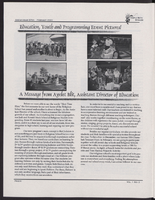Search the Special Collections and Archives Portal
Search Results
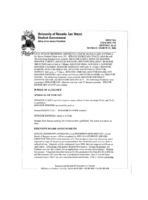
Meeting minutes for Consolidated Student Senate, University of Nevada, Las Vegas, March 22, 2004
Date
Archival Collection
Description
Text

Meeting minutes for Consolidated Student Senate University of Nevada, Las Vegas, January 10, 1985
Date
Archival Collection
Description
Text
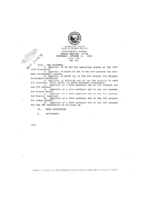
Meeting minutes for Consolidated Student Senate University of Nevada, Las Vegas, October 11, 1990
Date
Archival Collection
Description
Text
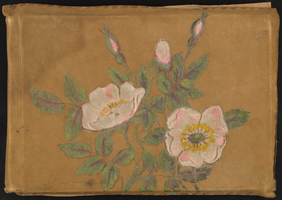
Scrapbook of poetry and other clippings
Date
Archival Collection
Description
Scrapbook of poetry and other clippings
Mixed Content

Charles Scott Emerson oral history interview: transcript
Date
Archival Collection
Description
Oral history interview with Charles Scott Emerson conducted by Claytee D. White on December 21, 2017 for the Remembering 1 October Oral History Project. In this interview, Charles Scott Emerson discusses his work with the American Red Cross and the disaster relief the organization provided during the aftermath of the October 2017 mass shooting in Las Vegas, Nevada. The interview begins with a discussion on Emerson's early life and career in Missouri and how he moved to Las Vegas in 2004. Emerson talks about the American Red Cross response plans and coordinated operations that are in place for when the community is faced with a disaster, going into specific detail on the community-wide response to the October 1, 2017 shooting. He gives a behind-the-scenes glimpse into how relief work is organized, using this interview as a chance to praise the hidden heroes of the October 2017 tragedy, including the people at the Family Assistance Center, the Attorney General's Office, the Driver's License Bureau, and the Coroner's Office, as well as mental health providers, child care workers, blood donors, and more. Throughout the interview, Emerson puts special emphasis on the importance of community in order to offer support in the aftermath of a tragedy as well as to prevent a man-made tragedy from occurring again.
Text

Dr. Alvaro Vergara-Mery oral history interview: transcript
Date
Archival Collection
Description
Oral history interview with Dr. Alvaro Vergara-Mery conducted by Barbara Tabach on October 28, 2020 for the Latinx Voices of Southern Nevada Oral History Project. Alvaro discusses his personal history and his upbringing in both Chile and the United Kingdom before immigrating to the United States; due to political unrest in Chile, he moved to the U.K. where his mother was born before attending university in the United States. Alvaro talks about his work as a medical interpreter for University Medical Center (UMC) as well as his college teaching experience at University of Nevada Las Vegas and California State Berkley.
Text
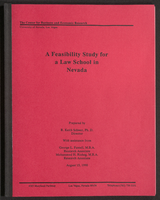
A Feasibility Study for a Law School in Nevada (bound)
Date
Archival Collection
Description
A bound version of "A Feasibility Study for a Law School in Nevada" prepared by R. Keith Schwer, Ph. D., Director, with assistance from George L. Fussell, M.B.A., Research Associate, and Mohammed H. Risheg, M.B.A., Research Associate, The Center for Business and Economic Research, University of Nevada, Las Vegas. From the University of Nevada, Las Vegas William S. Boyd School of Law Records (UA-00048).
Text

Catherine Cortez Masto oral history interview: transcript
Date
Archival Collection
Description
Oral history interview with Catherine Cortez Masto conducted by Claytee D. White on August 10, 2018 for the Latinx Voices of Southern Nevada Oral History Project. Catherine Cortez Masto grew up in Las Vegas near where the town ended and the desert began, which at that time was near Decatur and Pennwood. She grew up playing in the streets and riding horses and motor bikes with girlfriends and cousins. Her father, Manny Cortez, began as a valet at the Dunes before entering politics. He served 16 years on the County Commission and then 13 years as the chief of the Las Vegas Convention and Visitors Authority. As the head of the LVCVA, Manny oversaw campaigns to increase tourism, enlarge McCarran International Airport, improve taxicab service, and served as a visionary for the entire region. Catherine followed in her father's footsteps while being her own woman and making her own mark on the region. She attended college at UNR and law school at Gonzaga University School of Law. After a clerkship, she worked for a small local Las Vegas firm for 4 - 5 years, then moved to the governor's and then served two terms as Nevada's Attorney General. Currently she's in the US Senate with committee assignments that include Banking, Housing and Urban Affairs; Energy and Natural Resources; Commerce, Science, and Transportation; Rules and Administration; Indian Affairs, and the Committee on Aging. Subjects discussed include: Dunes, Manny Cortez, County Commission, LVCVA, Judge Carl Christensen, Judge Mendoza, Taxi Authority, Tourism, and Mike O'Callaghan.
Text

